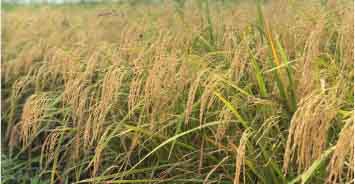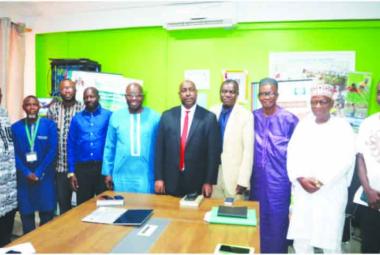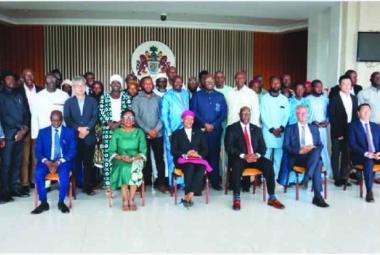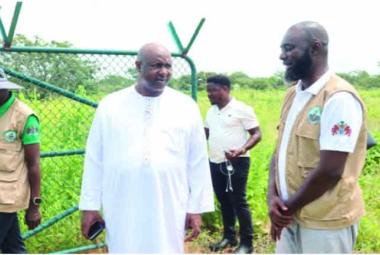By Fatou B. Cham
The 7-million-Dollar Rice Value Chain Transformation Project is a 5-Year (2019-2024) project jointly funded by the Africa Development Bank (AfDB) and The Gambia Government.
The project seeks to increase rice production and commercialisation in the country, by using a value chain approach within the three agricultural regions of CRR North and South, and URR, which are the major rice-growing regions of The Gambia.
The primary objective of the project is to intensify production to reduce the importation of rice as it correlates to the long-term food self-sufficiency drive of the Ministry of Agriculture.
Shedding more light on the project, Bakary K.S Sanyang, Monitoring and Evaluation (M&E) officer of the value chain initiative, explained that the project has three components: Production and productivity enhancement, agribusiness, market and capacity development, and project management.
He said the total direct beneficiaries of the project will be about 15,000 households, out of which about 40% will be youth and women.
Mr. Sanyang noted that with an average of 8 persons per household, this would result in improved livelihoods for about 120,000 people indirectly.
“The first component of production and productivity is purely looking at the rice productivity through rice multiplication,” he said. To tackle the problem of rice, he said they want to first look at the seeds; which include the breeder seed, foundation seed, and certified seed.
“We are tasked by the project during the appraisal to bring in 200 kg of breeder seeds and 4.5 metric tons of foundation seeds and to provide almost 250 metric tons of certified seeds to farmers,” he revealed.
He went on: “When you talk about breeder seeds it is usually handled by National Agricultural Research Institute (NARI), the National Seeds Secretariat are responsible for foundation seeds while the certified seed is where the department of Agriculture comes in.”
Mr Sanyang disclosed that it has been two years six months since the start of the project implementation and that they have recently concluded the midterm review.
“Before the midterm review, we had registered numerous achievements. On breeder seeds, we have already brought in 100kg out of the 250kg that we should bring in; that is about 40%”.
He said they have produced a substantial amount of foundation seeds, close to 8 metric tons, thereby outperforming the project’s target for five years. “We are currently 131% for the certified seed. We have been tasked by the government to produce 250 metric tons of certified seeds but within two years five months we were able to produce 568 metric tons of certified seeds for both NERICA L-19 and Orylux seeds”.
The M&E Officer however acknowledged that the project was hit by some challenges including the passing away of the former project director. Sanyang recognized the late director’s foresight in the conception of the project.
He also raised concern about the subvention from the Central Coordinating Unit (CPCU) and the Ministry of Agriculture, saying the Ministry’s contribution is not forthcoming as expected.






